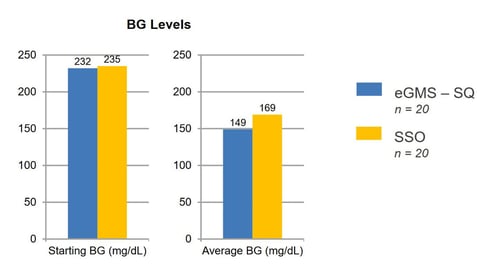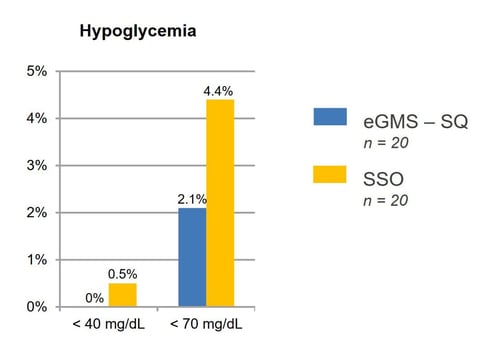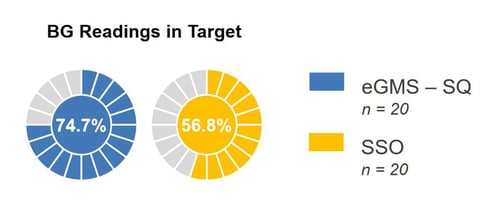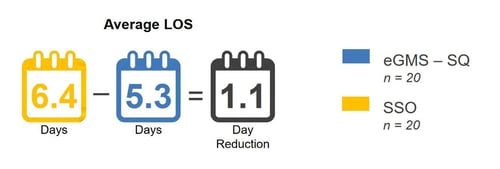Presentation
Annual Diabetes Technology Meeting
Date
October 2015
Authors
Jagdeesh Ullal, Melanie Mabrey, Amy Henderson, Raymie McFarland, Robby Booth, Joseph Aloi
Objective
Admission hyperglycemia (>130 mg/dL) and persistent inpatient hyperglycemia (>48 hours) have been predictors of poor patient outcomes, including higher mortality, higher rates of in-hospital complications and longer length of stay in patients with acute ischemic stroke. This study evaluated the glycemic outcomes of patients using eGMS Subcutaneous (eGMS-SQ) for subcutaneous insulin management versus Standard Subcutaneous Orders (SSO) in patients with Acute Ischemic Stroke.
Methods
The study evaluated 40 patients with type 2 diabetes mellitus at Sentara Health System who required SubQ insulin to manage hyperglycemia. Qualifying patients 2 blood glucose levels >180 mg/dL were treated with eGMS-SQ or SSO with a target of 120-160 mg/dL. The efficacy and safety of each was evaluated by the following:
(1) BGs 71-180 mg/dl
(2) BGs >180 mg/dl
(3) Hypoglycemic events
(4) Average BG and Average LOS
Results
Patients (n = 20) treated with eGMS-SQ had a starting BG of 232 mg/dL, average BG 149 mg/dL, 74.7% of readings in target, hypoglycemia <70 mg/dL was 2.1% and hypoglycemia <40 mg/dL was 0.0%. Average LOS using eGMSSQ was 5.3 days. Patients (n = 20) treated with SSO had a starting BG of 235 mg/dL, average BG on eGMS-SQ 169 mg/dL, 56.8% of readings in target, hypoglycemia <70 mg/dL was 4.4% and Hypoglycemia <40 mg/dL was 0.5%. Average LOS using SSO was 6.4 days.
Conclusion
These results suggest eGMS-SQ can effectively and more importantly safely control and maintain glucose control for patients with Acute Ischemic Stroke. A higher percentage of patients reached target glucose levels, had over 50% less hypoglycemia <70 mg/dL and a significantly lower LOS was observed.



